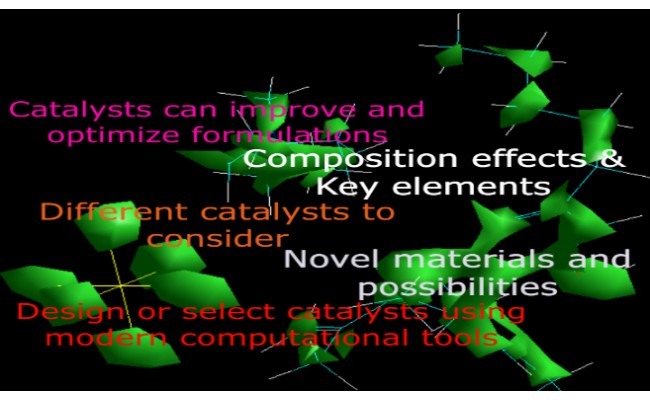- Call: +1 850 633 2663

Through the continuous development of catalysts, reactions become faster and more profitable for any industry. Catalytic processes are the most prominent and efficient processes in polymers, manufacturing, chemicals and other sections including oil and gas. Catalytic action is known to be affected by a number of factors that include physical structure, chemical structure, composition of elements, identity of elements, environment and many more. (Focus is on heterogenous catalyst industry)
Selection and modification of optimum catalysts thus become a complicated task for the lab chemist, R&D chemist, or process engineer and require deep understanding of the effects of each factor as well of the combined effects of those factors. Traditionally, the discovery of catalysts was based on pure intuition, experience and luck. Modern times allow for discovery of catalysts, as well modification and optimization of existing ones via Computational Chemistry simulations and other tools. Most large organizations comprise R&D departments that are committed with the task of modifying existing and developing novel catalysts. Smaller organizations follow different routes, most commonly fitting their process to known processes and copy the catalyst identity. All organizations face issues during operation that had rarely been predicted in design phase. In any case, the need for deep understanding is vital as troubleshooting, efficiency limitations, environmental regulations, poisoning, compatible systems are all part of the problem.
This training addresses the selection of catalysts step by step based on the reaction system we have at hand. All the key elements of solid – fluid interactions are analyzed and explained in detail. This training offers a deep understanding of catalytic processes, catalytic action and factors affecting catalytic action and efficiency. Within this training it is explained how the catalytic processes initiate, progress, slow down and restart, what issues they face and how these issues are troubleshooted. In this course the participant learns how to design or select catalysts using modern computational tools.
This is a must have training for any professional of chemical industry in R&D and formulation process in particular:
1 reviews